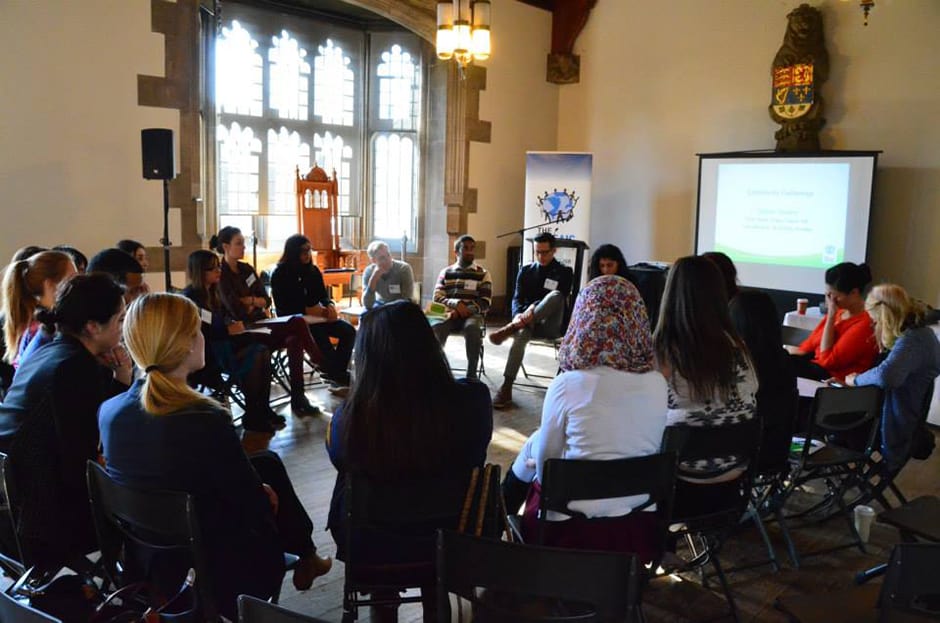“Women suffer disproportionately,” began Augusta Waldie, co-president of UofMosaic@UofT at the Women & Armed Conflict Citizen Summit, presented by The Mosaic Institute on November 15, 2014.
The day-long event offered a space for students to discuss issues affecting women in armed conflict.
Waldie says that discussions surrounding sexual assault and gender-based violence have recently exploded on campus, creating a framework for students to think about justice on a global scale. “It is our hope that students will expand their interest and their pursuit of justice to an international context and work with us to ease the suffering of women trapped by armed conflicts,” Waldie says.
Illana Landsberg-Lewis, who currently serves as the executive director of the Stephen Lewis Foundation, an organization dedicated to combating HIV/AIDS in Africa, spent eight years working for the UN Development Fund for Women (UNIFEM). During her time with UNIFEM, she was instrumental in the development and management of UNIFEM’s Trust Fund on Violence against Women.
Landsberg-Lewis discussed her time working at the United Nations, as well as issues surrounding gender violence as a weapon of war.
She focused on conflict in the Democratic Republic of Congo, which she describes as “one of the worst places in the world for women” — where rape is normative and used to spread HIV/AIDS.
When asked if she feels hopeful in spite of the hardships she witnesses, Landsberg-Lewis says that the she “runs on outrage,” and that the women she works with give her hope.
Lee Maracle, traditional teacher at the University of Toronto’s First Nations House, also gave a talk on First Nations restorative justice and the Stolen Sisters. “Rape is not about sex, love, lust or the way you dress — but about powering out on someone,” Maracle said during the discussion, adding: “Girls need to learn to fight back.”
Another member of the U of T community also spoke at the event: James Maskalyk, a physician and author who practices emergency medicine at St. Michael’s Hospital in Toronto.
Members of the UofMosaic, a network of campus-based chapters of The Mosaic Institute, discussed why it is important for students to care about global conflict issues. “Toronto is full of multi-cultural identities that are able to connect with these issues and should get involved,” says Abdi Hesi, a graduate student at U of T, adding: “Understanding international conflict can help people understand conflict in Canada between indigenous people and the government.”
Alawia Sherif, an undergraduate student at U of T, says that “one of the guiding values of Mosaic is creating an inter community dialogue between communities in conflict and to harness diversity in a way that creates a generation of global citizens.”
Waldie adds that UofMosaic@UofT is currently working with the International Campaign to Stop Rape and Gender Violence in Conflict to raise awareness about these global issues and create tangible change.
Concluding her keynote address at the Women & Armed Conflict Citizen Summit, Landsberg-Lewis’ voice broke with tears as she told the audience that it is “so far past time to act.”


